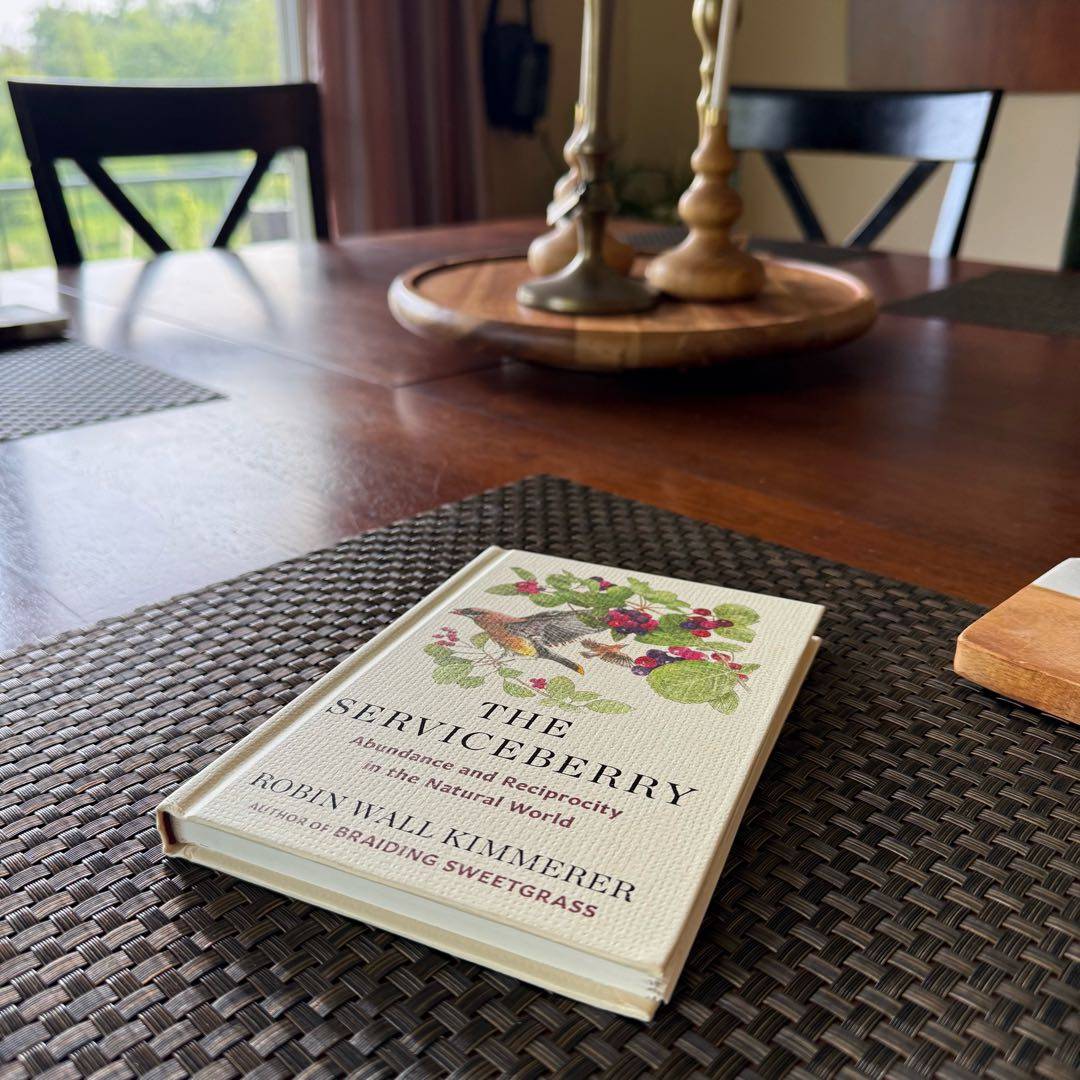
As an avid birdwatcher, and having just planted serviceberry and other shrubs to attract more birds, when I saw this at the bookstore, of course. Of course I bought it. 🐦🌳
#birdwatching #springtime

As an avid birdwatcher, and having just planted serviceberry and other shrubs to attract more birds, when I saw this at the bookstore, of course. Of course I bought it. 🐦🌳
#birdwatching #springtime
I love the connection Robin Wall Kimmerer holds with the earth. Her writing always makes me want to find a better way during my journey here on this planet. Her voice is soothing and inspiring. I know the berry by the name sugarplum. The berries are a gift as are other berries and fruit. Thank you to the author and for those who recommended this book to me. 5/5🌟
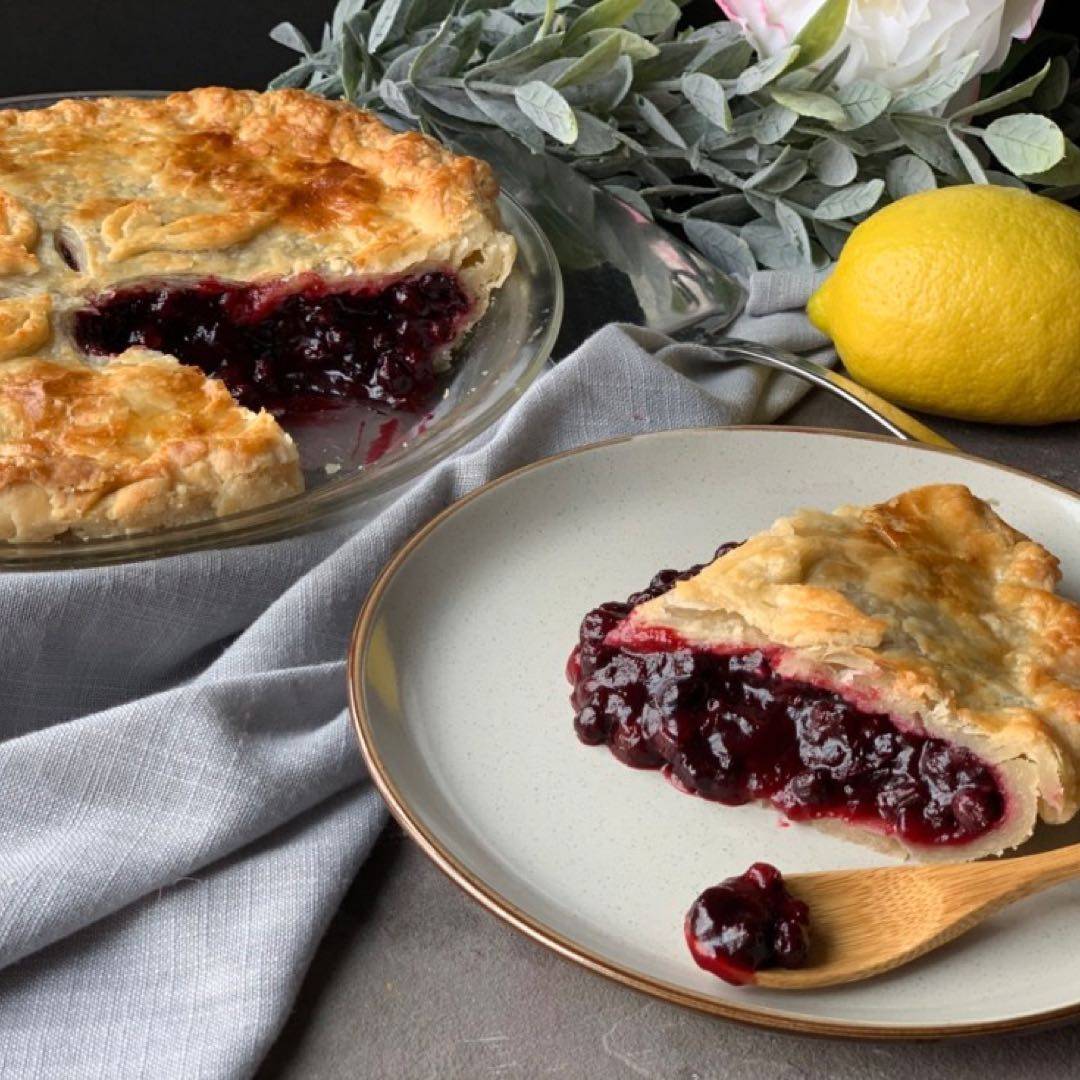
I didn‘t expect this book to be so small. But it certainly packs a punch. Rather than a brief history of the serviceberry tree, the author, who is Indigenous, uses it as an example for how we can and why we should, move away from a capitalist economy, and into a heart centered one. This is called a ‘gift economy‘. In a world not ruled by greed, there is only the cycle of caring, giving, receiving, and giving again. There is more than enough⬇️
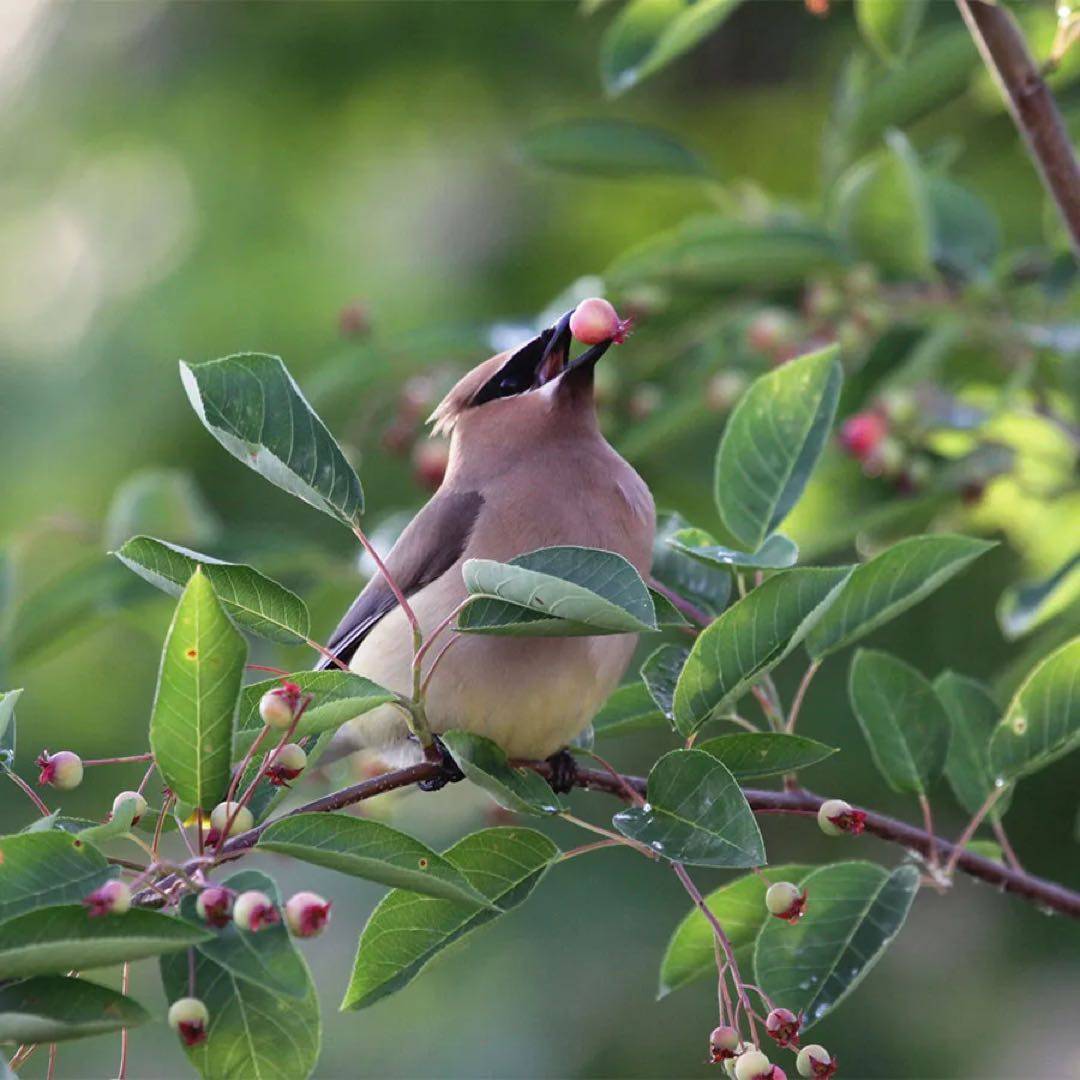
Regenerative economies that reciprocate the gift are the only path forward. To replenish the possibility of mutual flourishing, for birds and berries and people, we need an economy that shares the gifts of the Earth, following the lead of our oldest teachers, the plants. They invite us all into the circle to give our human gifts in return for all we are given. How will we answer?

The Indigenous philosophy of the gift economy, based in our responsibility to pass on those gifts, has no tolerance for creating artificial scarcity through hoarding. In fact, the “monster” in Potawatomi culture is Windigo, who suffers from the illness of taking too much and sharing too little. It is a cannibal, whose hunger is never sated, eating through the world. Windigo thanking jeopardizes the survival of the community by incentivizing⬇️
#Read2025 The author narrates her own book and she has such a peaceful sounding voice. She seems to be very much in tune with the world around her and she has a great deal to teach. Recommended. I thought I read this for a challenge or a buddy read but I can‘t find which one.
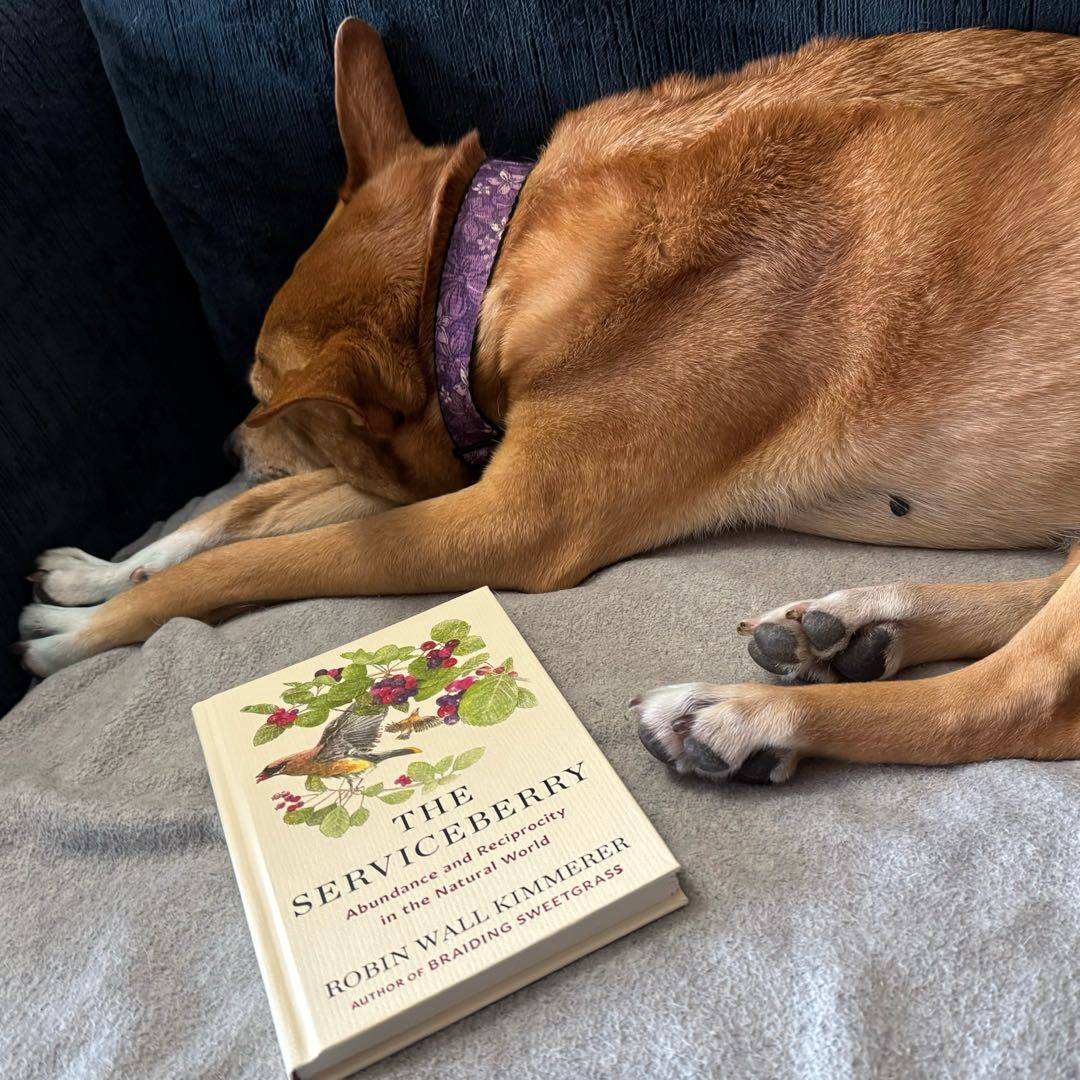
I did not know how many names the Serviceberry has. The one I knew it as is Sugarplum.
If you have enjoyed Braiding Sweetgrass or Gathering Moss, you‘ll fall right back in to this short book. But be aware it is much more about Gift Economy than about plants.
My favorite idea is that if you have an abundance of food, more than you can use, you should store it in the belly of your brother (sister, neighbor, etc), trusting reciprocity.

I listened to this twice before returning it to the library. This is a book that outlines ancient practices that we‘ll surely be required to practice in the future. Not consuming more than you need or that the planet can sustain, of sharing within a community. I lived on a commune for years just for this reason. Eventually upon moving to Vermont my husband ran a business that was paid through bartering more often than cash. It‘s the way to go.
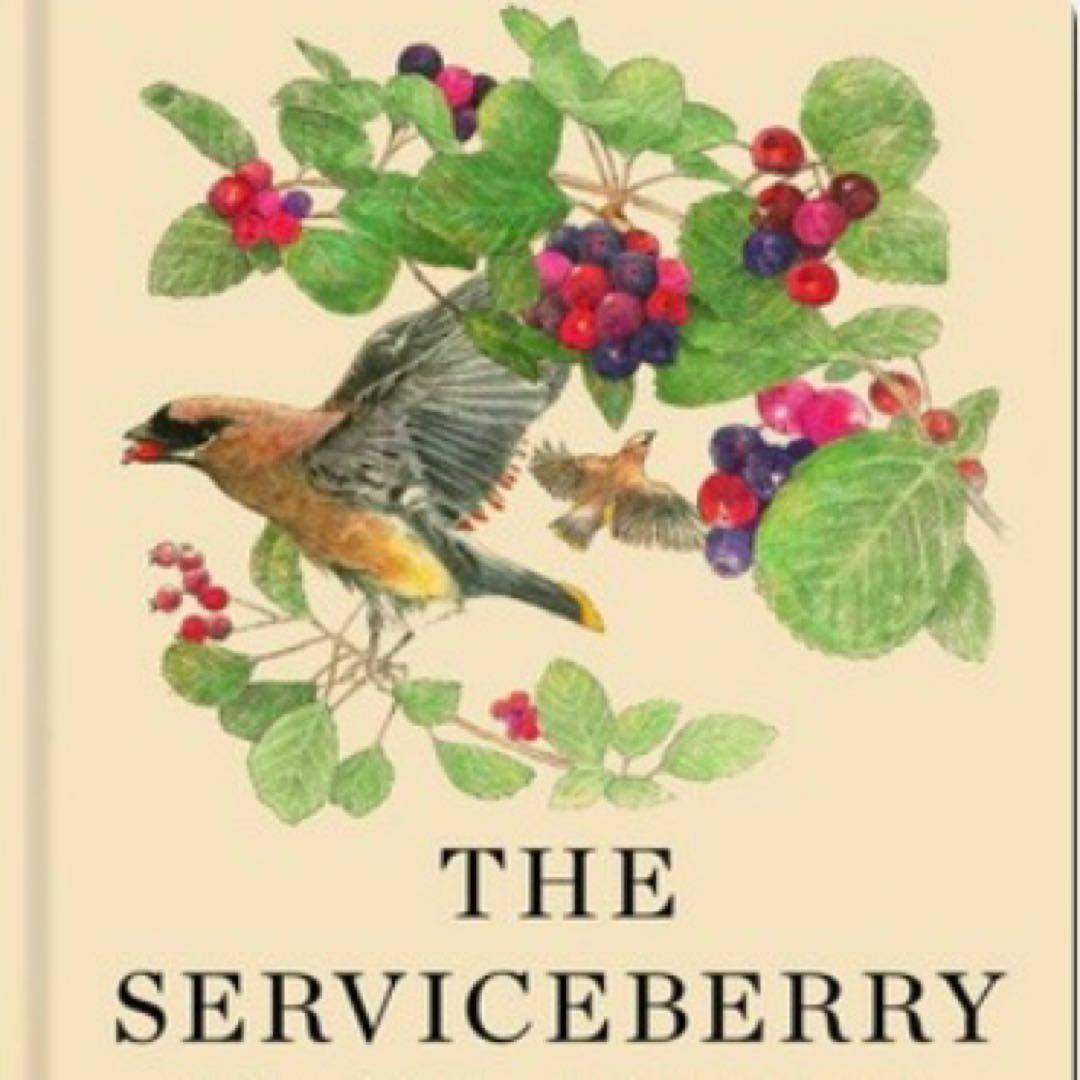
I really enjoyed this book and loved the idea of gift economies. Like Kimmerer, I understand that replacing our economy with one like this would be impossible because of how entrenched our economy is, but, as she points out, we already have a small gift economy running alongside ours in the form of things like little free libraries and shared lands. Increasing these will give us a greater sense of community.
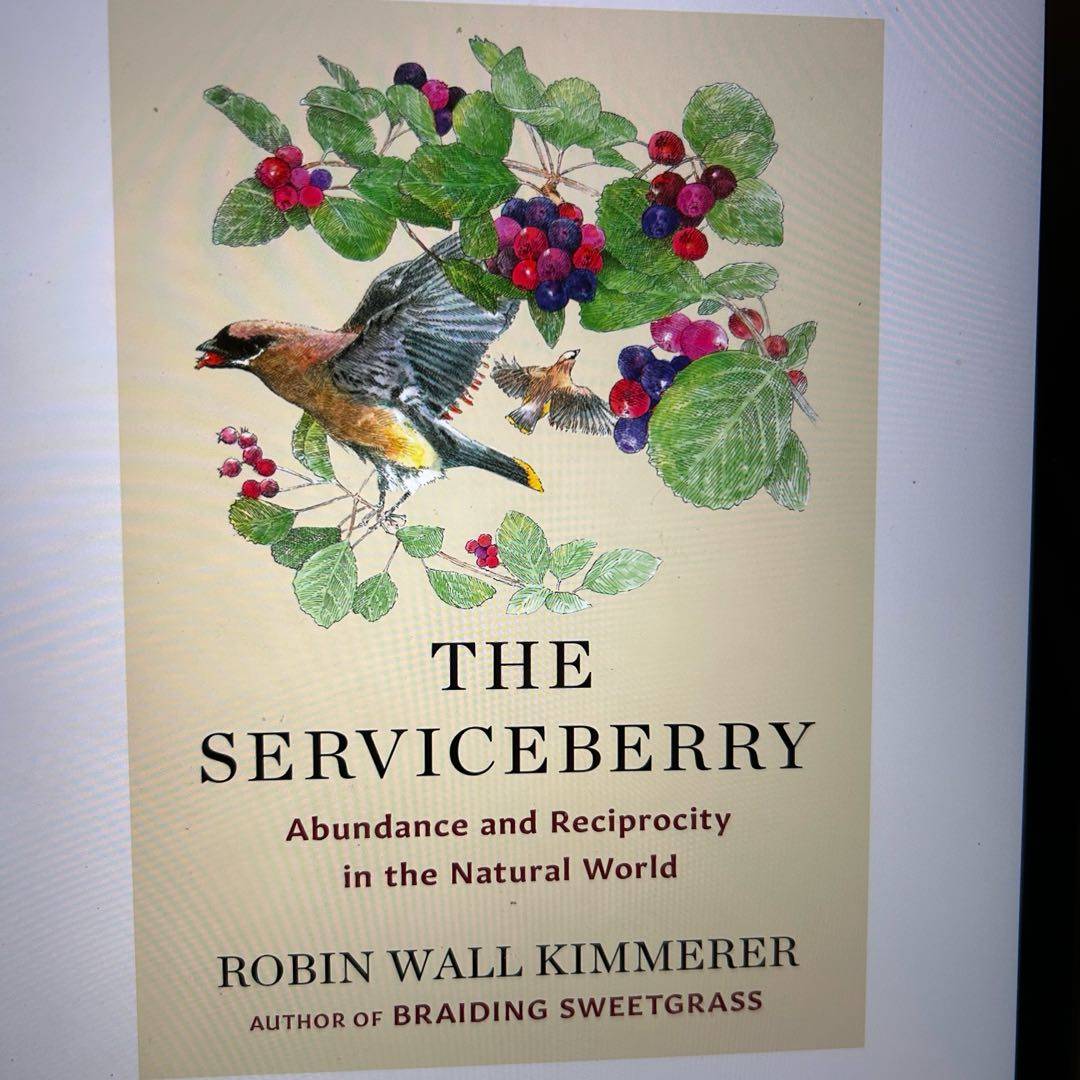
I can‘t sleep, so I‘m reading this book. I keep meaning to read Braiding Sweetgrass, but haven‘t done it yet.
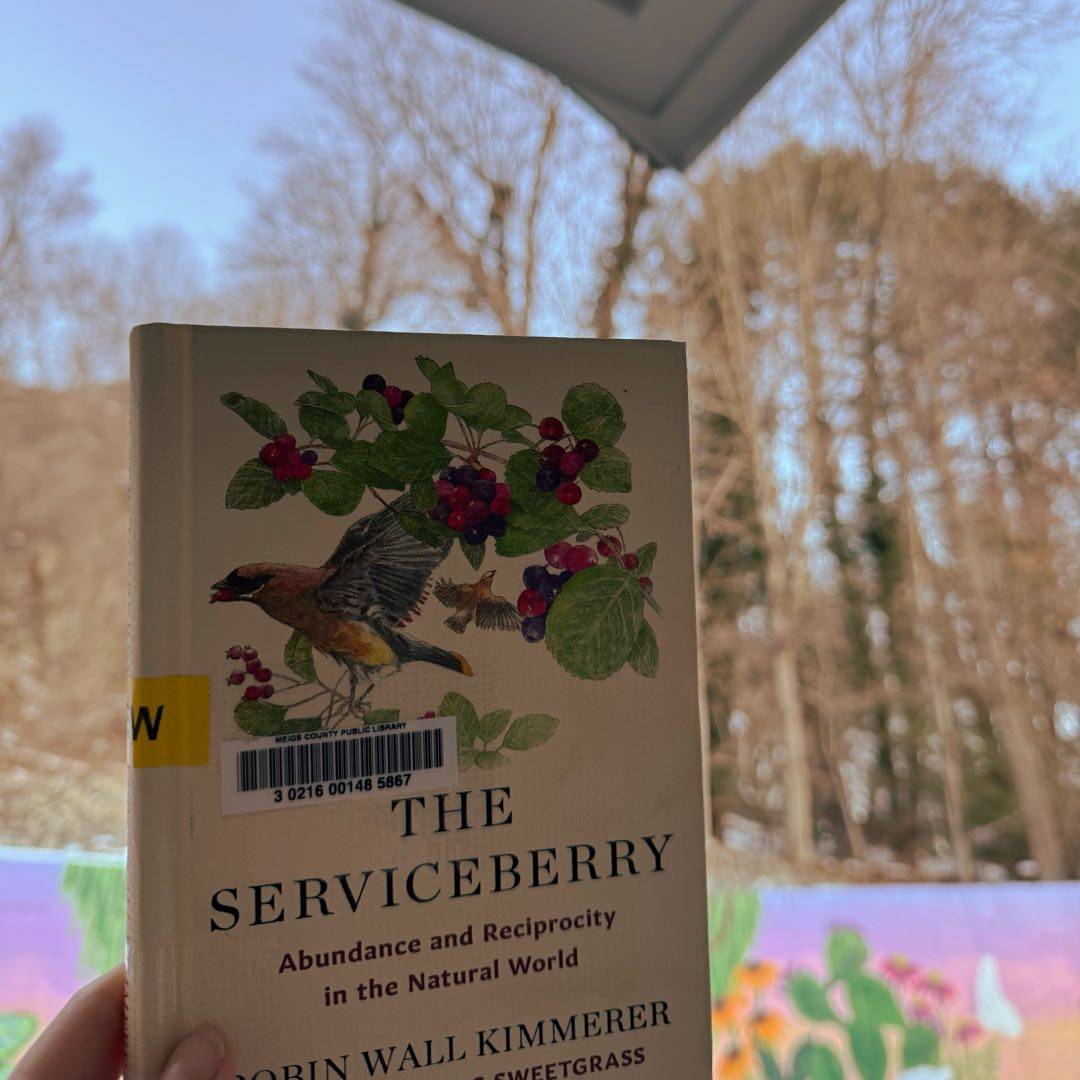
“All flourishing is mutual.”
“We don‘t all have to own everything.”
A lovely little book singing the praises of libraries and the “gift economy” with examples from nature. A beautiful volume full of lovely illustrations of cedar waxwings and plants. Very slim, but does its job perfectly. A wonderful reminder to spread the wealth and as always from Kimmerer, keep our natural environment in mind.
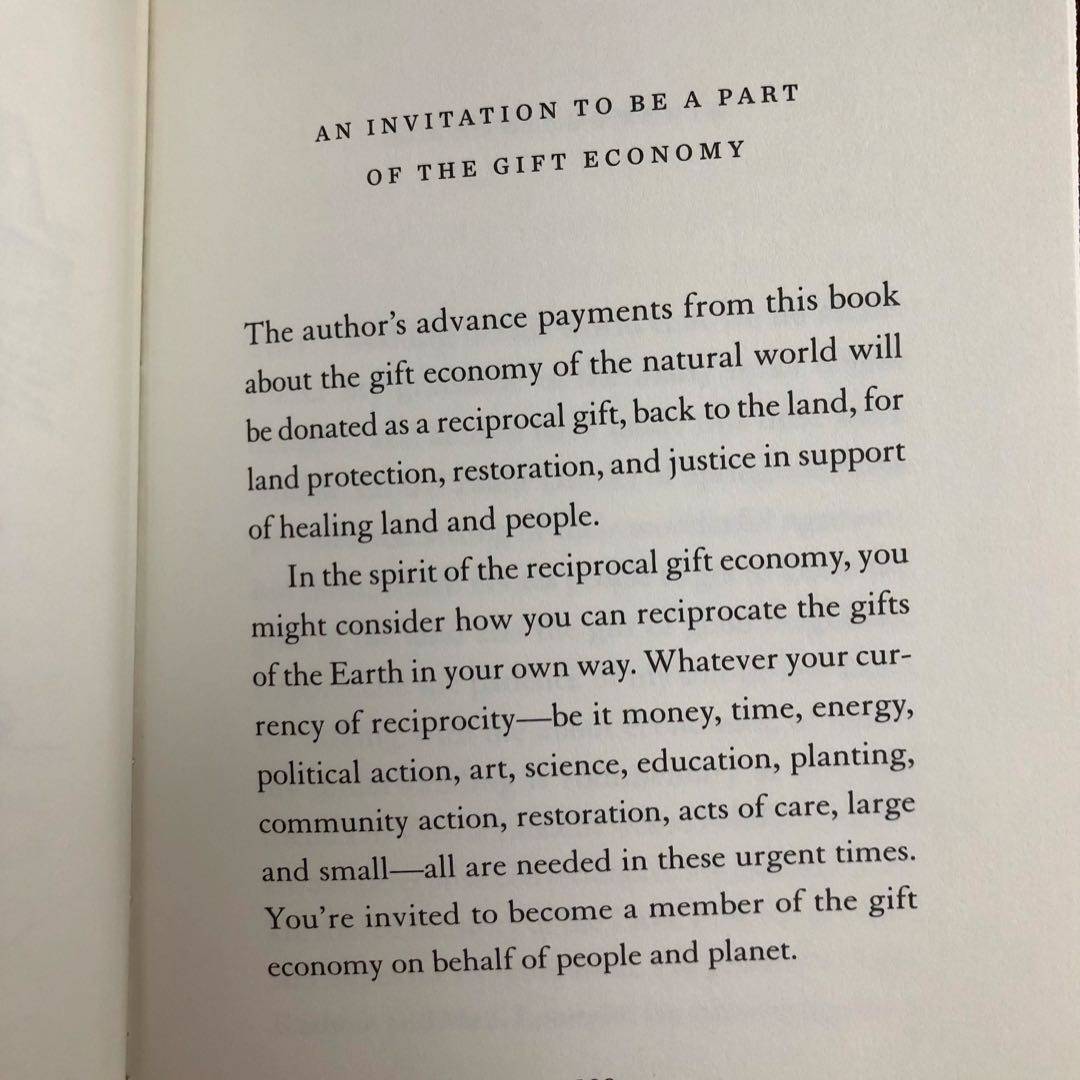
Love this invitation! We all do this anyway, but by being actively conscious of it we can better appreciate the gifts we‘ve been given and those we give. We can even level up.
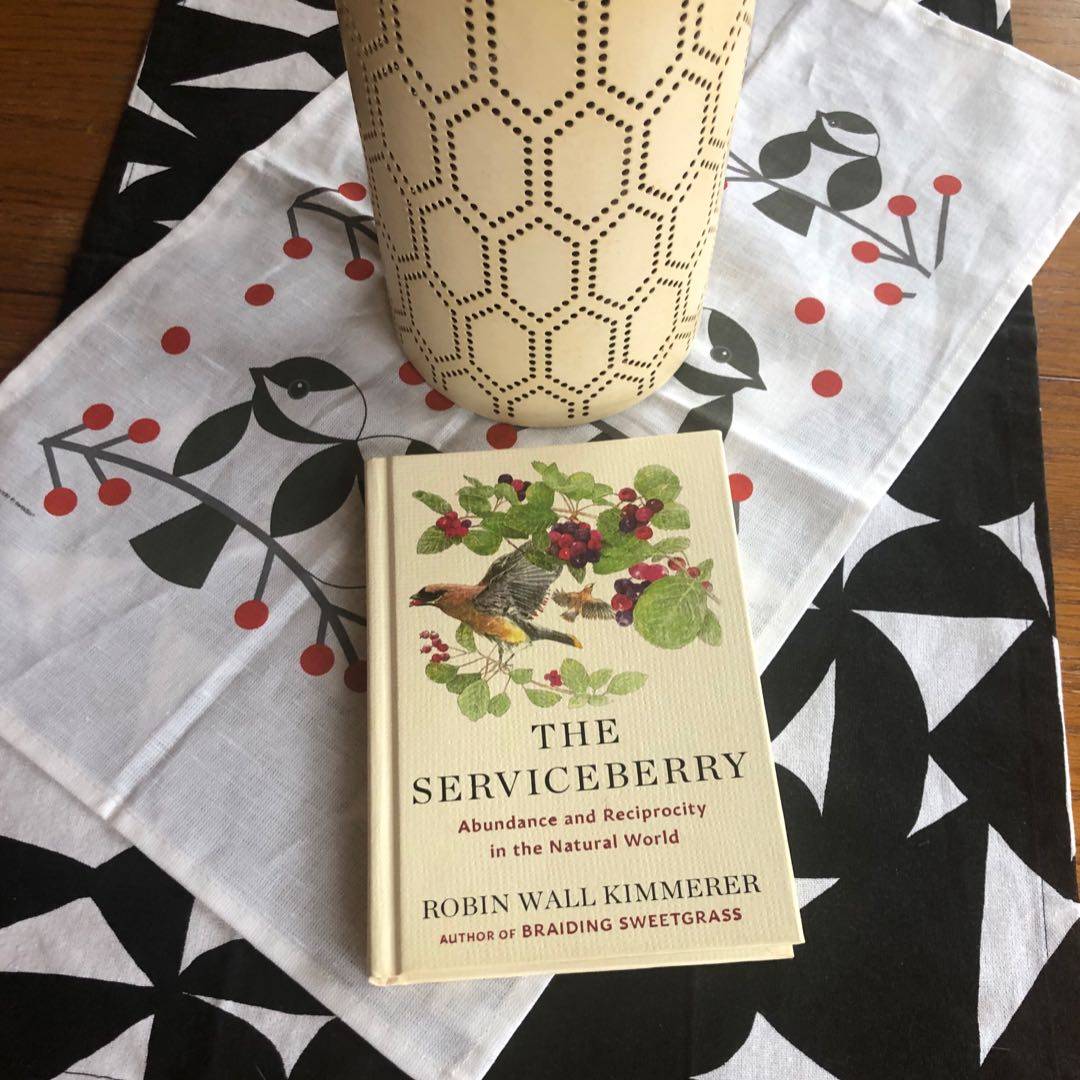
Kimmerer‘s writing is always lovely and this is no exception.
Excellent ecological & economic ethos to focus on in the new year: restraint, respect, reciprocity. We can each contribute in our own ways.
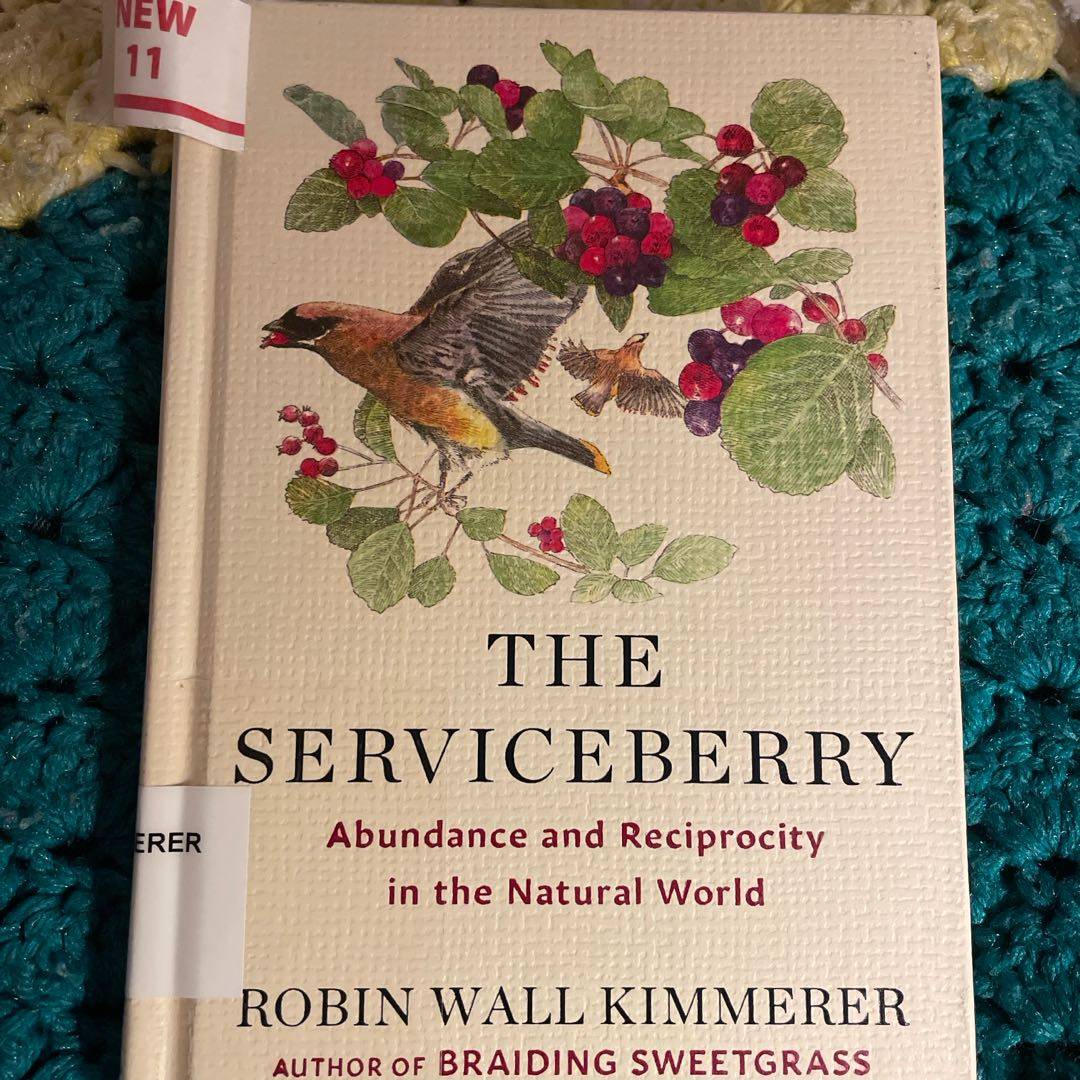
Beautiful manifesto
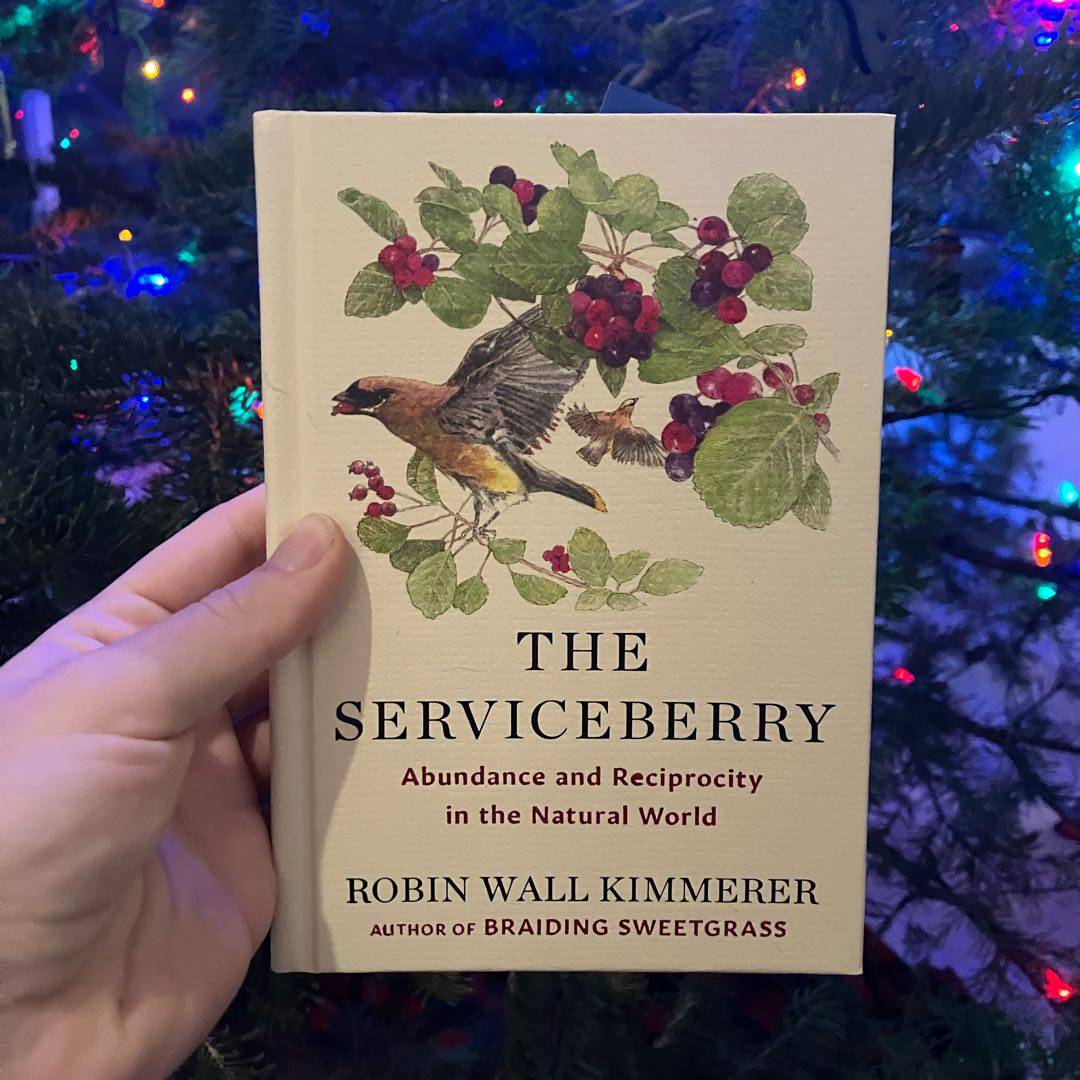
I was delighted to unwrap this little book today from my mother in law. It just so happened to be a rec in the latest episode of the podcast for the theme of “Resetting in the New Year”. Can‘t wait to dive in.
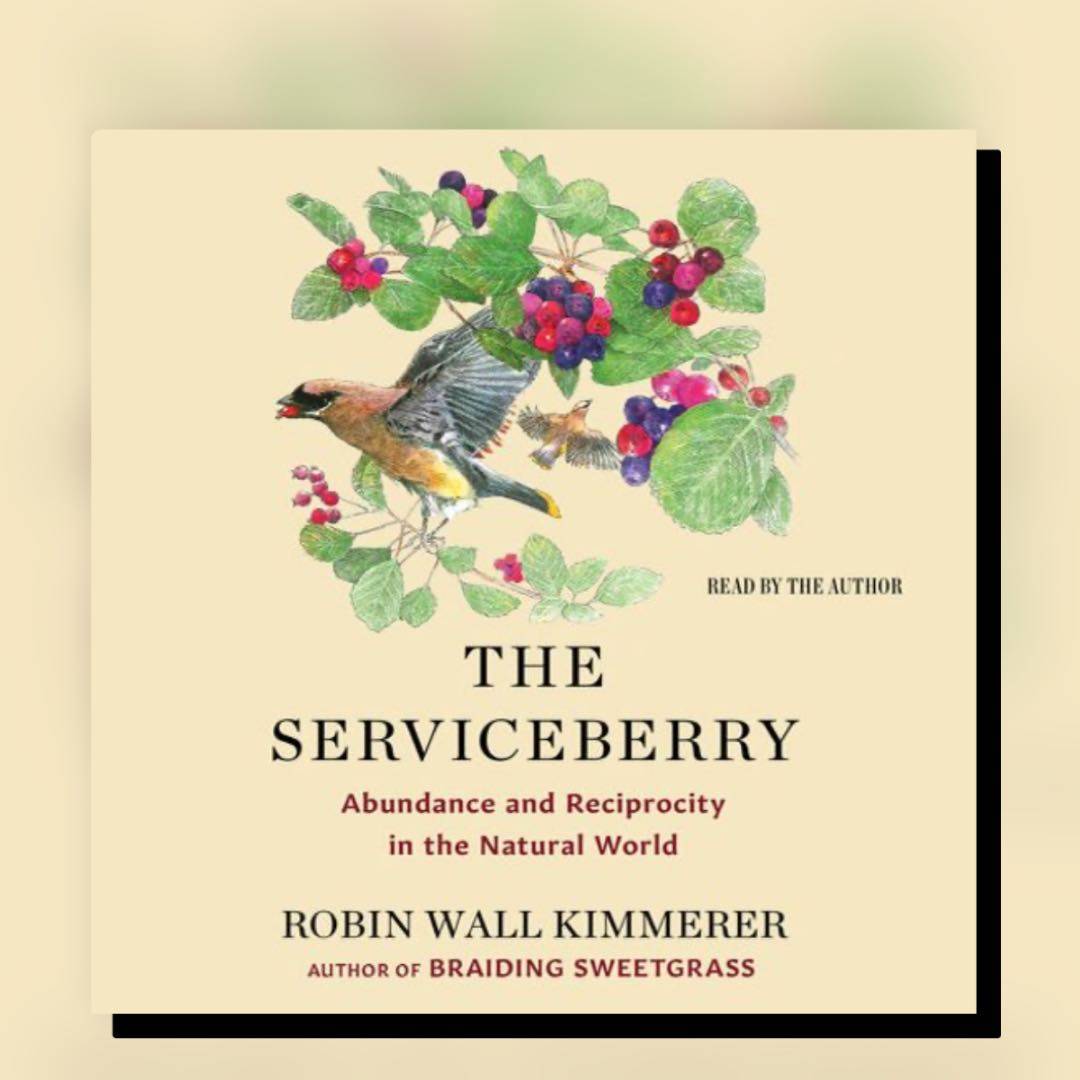
This is more of an essay about how we as a society are too dependent on consumerism and our economy and how we should cut back and share/gift more. As a librarian with 2 Little Free Libraries, a Caring Cupboard at work, a food donation bin that always seems to be full and a new found love of sewing/upcycling, I whole heartily agree. She uses the Serviceberry throughout the book as she makes her points. I very much appreciated this one.
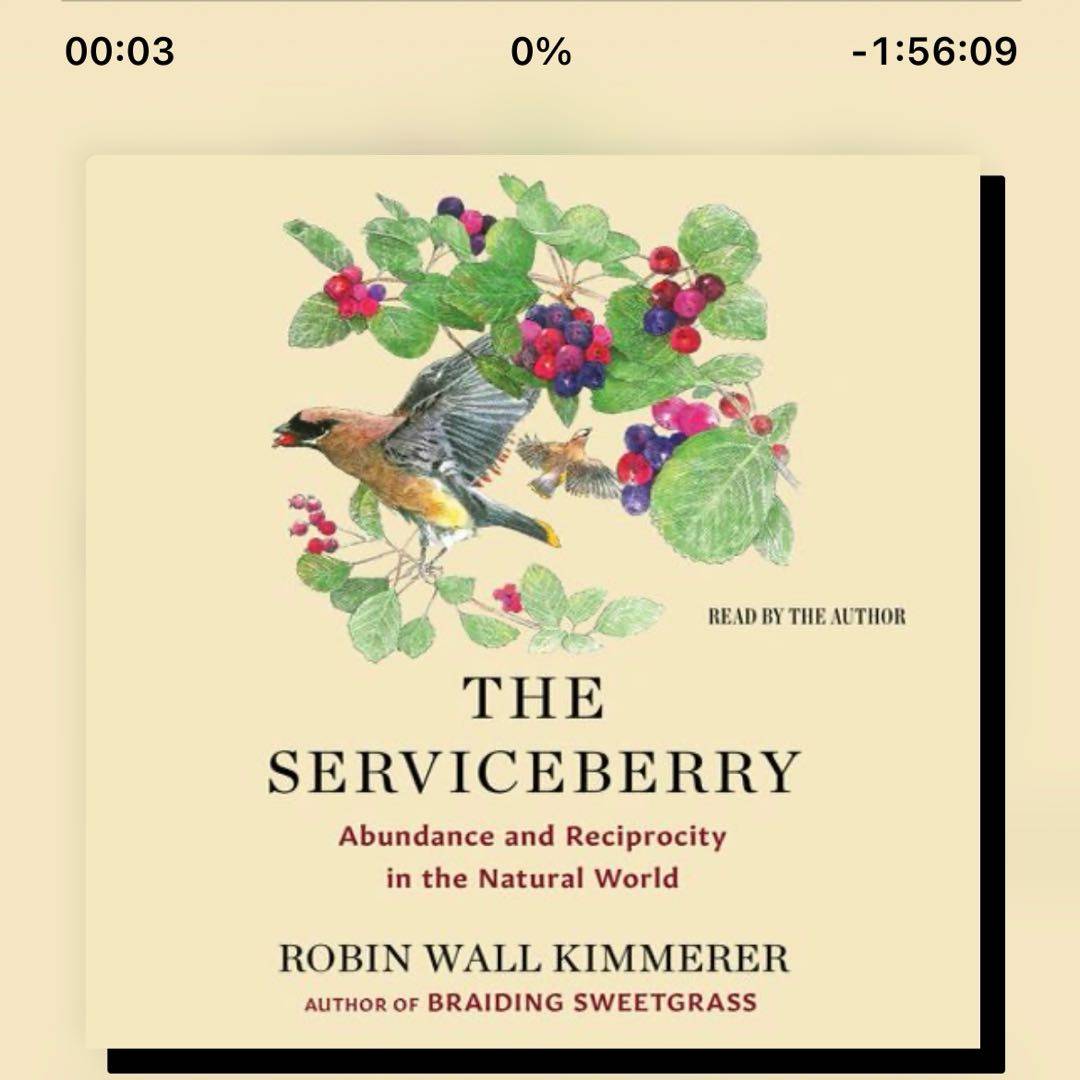
Loved it!!!!
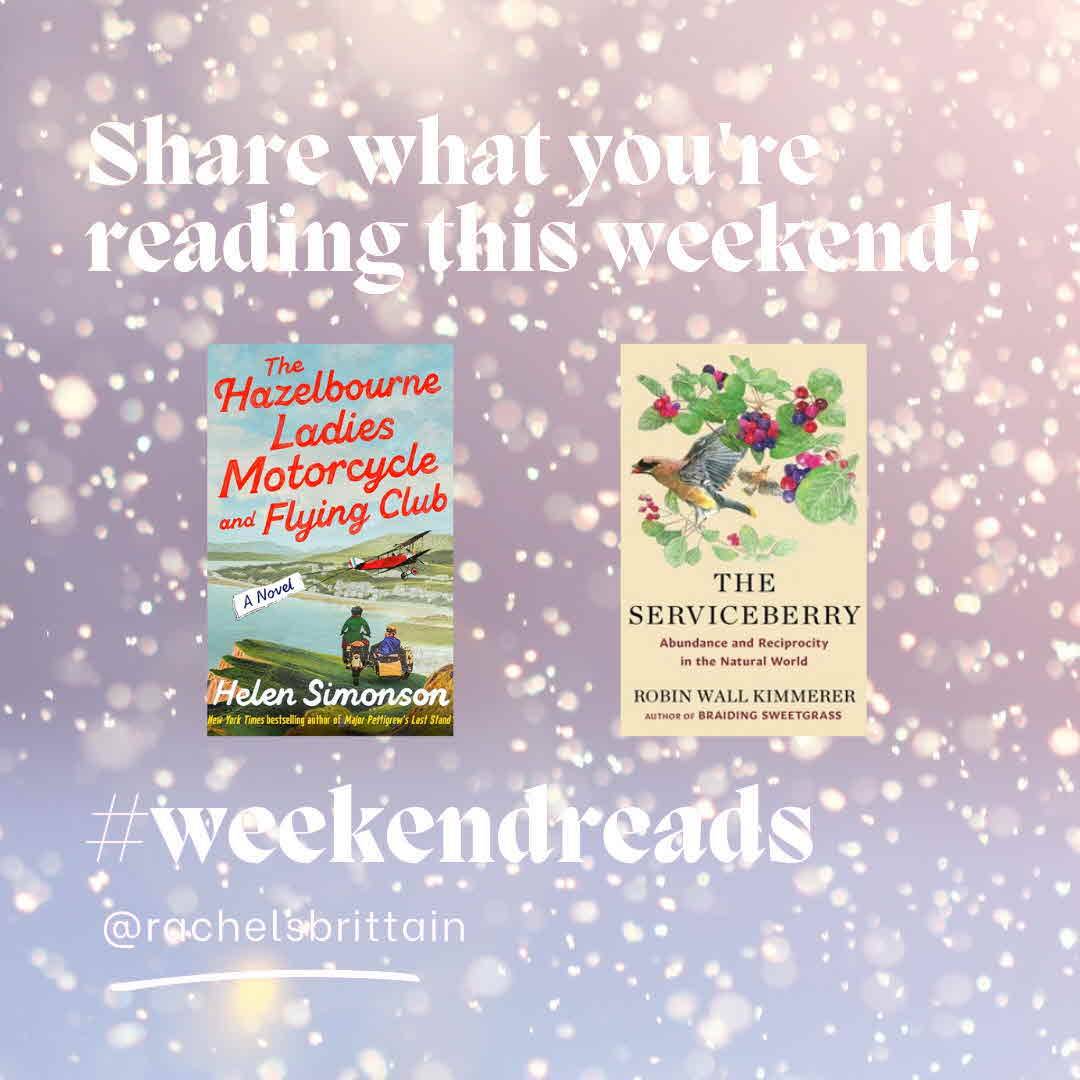
One last wild travel day. I usually get a lot of reading done on airplanes but entertaining a toddler has really gotten in the way of any reading time 😅 ##WeekendReads
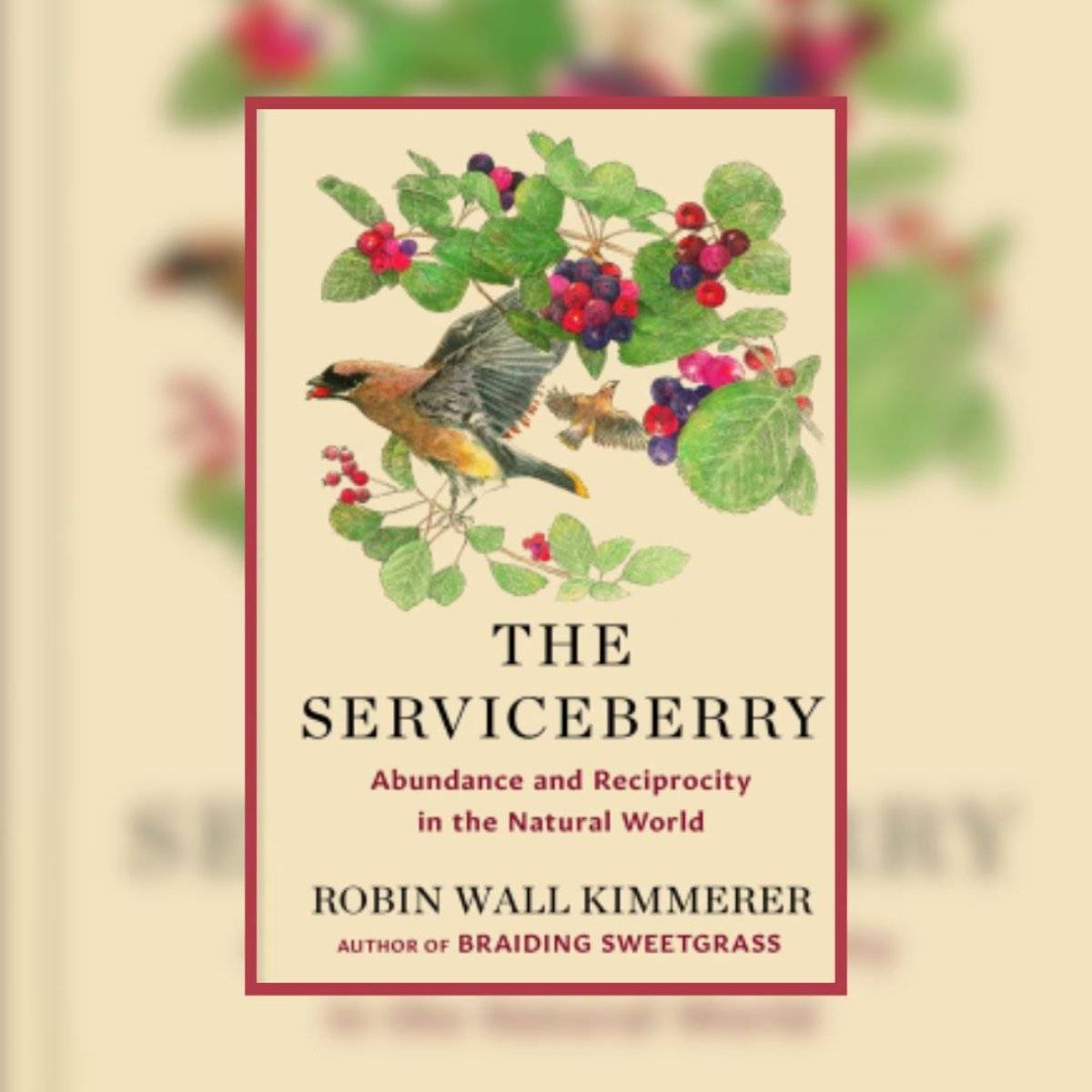
4/5
I thought this was a really lovely essay about what we can learn from the serviceberry and ecology more broadly about gratitude, reciprocity, community, and gift economies. I found it's message very inspiring.
#netgalley
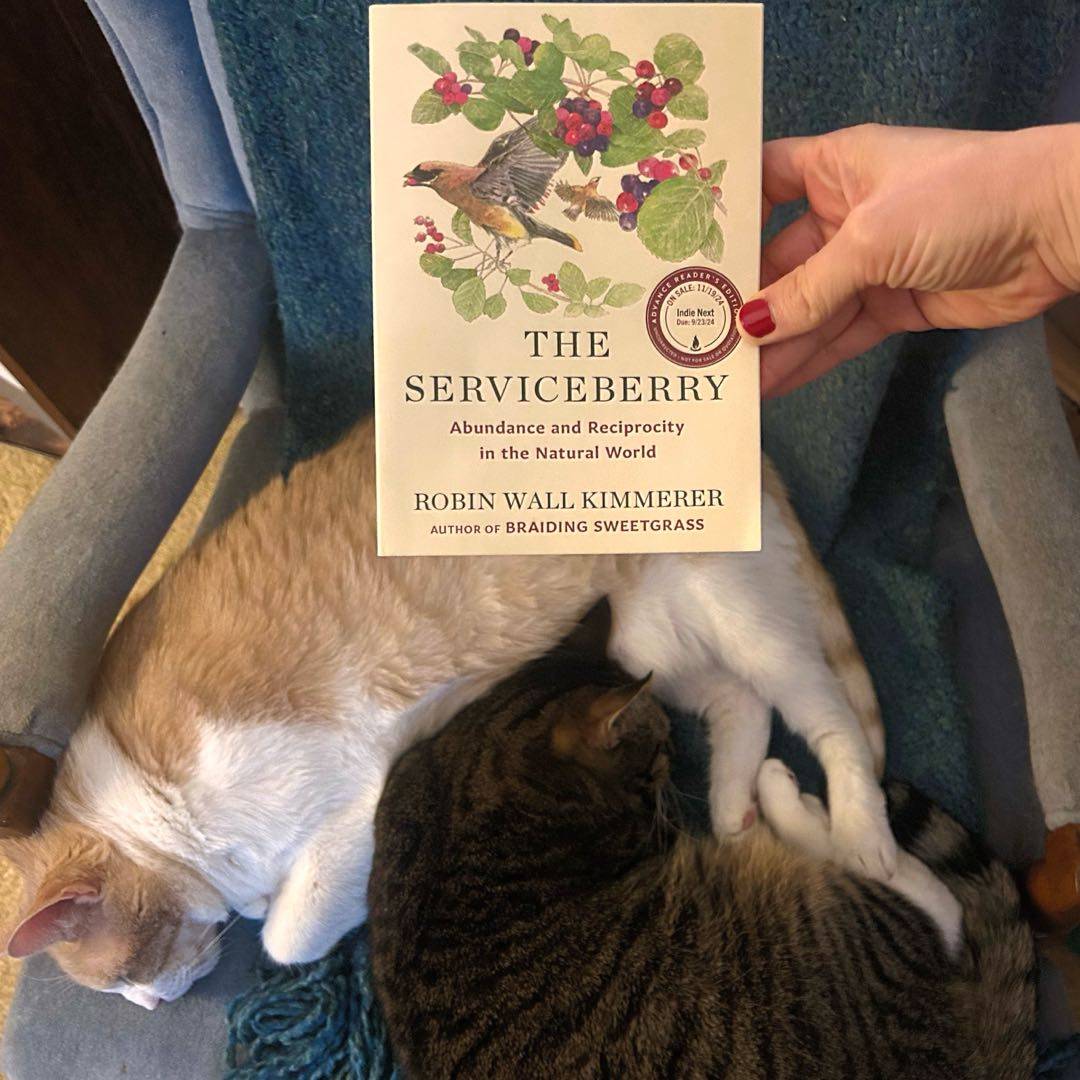
Fans of Braiding Sweetgrass, rejoice! Robin Wall Kimmerer has blessed us with a compulsively shareable contemplation of nature‘s exquisite gift economy and how it can inspire us to imagine and act toward a saner, more sustainable, equitable, and joyful biophilic economy. As I was reading, I kept feeling that a new classic had arrived in the nick of time, one I imagine becoming an annual tradition to read, revisit, and grow from each time.